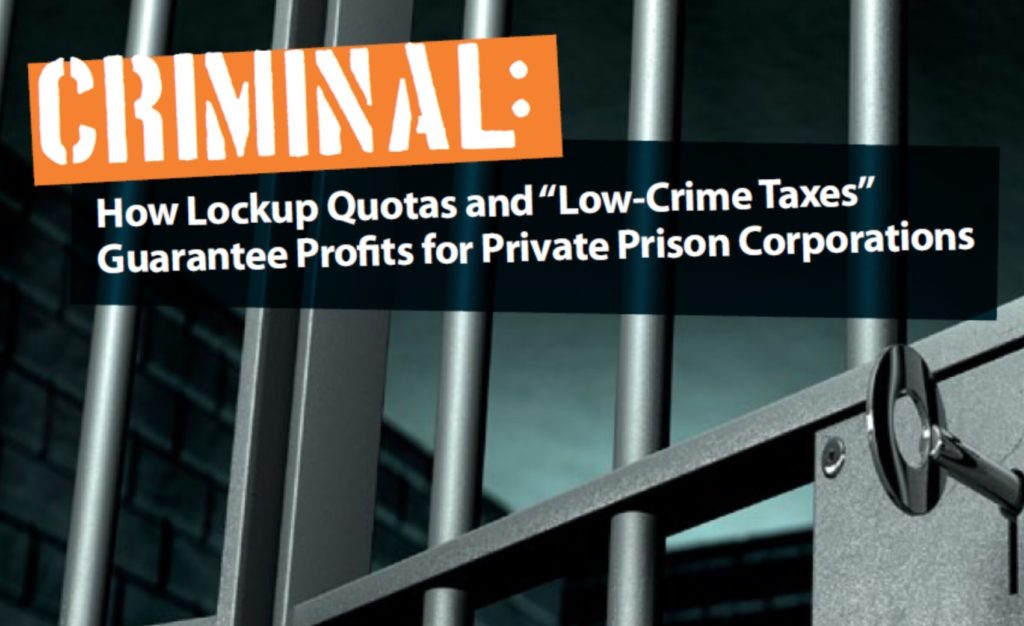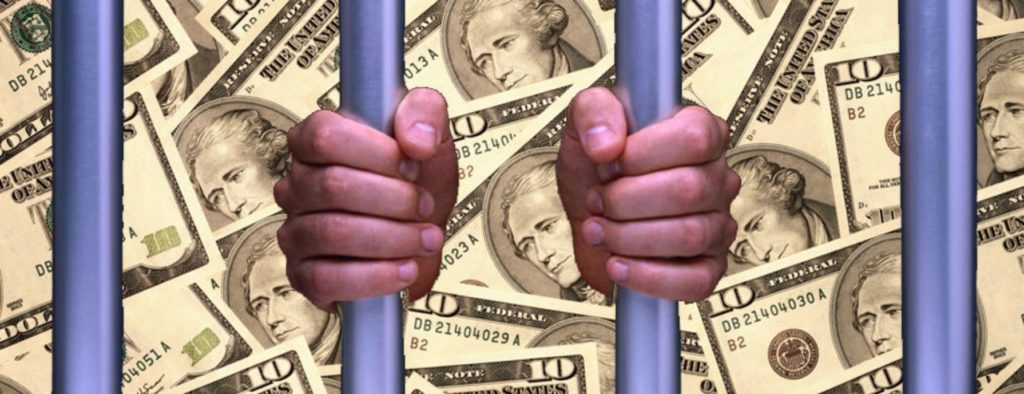Private prisons are antithetical to a free people. Of all the functions a civilized society should relegate to the public sector, it’s abundantly clear incarceration should be at the very top of the list. Jailing individuals is a public cost that a society takes on in order to ensure there are consequences to breaking certain rules that have been deemed dangerous to the happiness and quality of life within a given population. However, the end goal of any civilized culture must be to try to keep these cost as low possible. This should be achieved by having as few people as possible incarcerated, which is most optimally achieved by reducing incidents of criminality within the population. Given incarceration is an undesirable (albeit necessary) part of any society, the idea is certainly not to incentivize increased incarceration by making it extremely profitable. This is a perverse incentive, and one that is strongly encouraged by the private prison industry to the detriment of society.
I’ve written many articles highlighting the negative consequences of the private prison industry, and these have focused on the two biggest names in the space. Corrections Corp of America (stock ticker, CXW) and GEO Group. A few of my most popular articles on the topic are:
Texas Teen Faces 8 Years in Jail for an Insensitive Joke on Facebook
Idaho Dumps Private Prison Company Due to “Violence, Understaffing and Over-billing”
America in 2013: Florida Football Stadium Named After a Private Prison Company
In the Public Interest has taken this a step further in its recent excellent report titled: Criminal: How Lockup Quotas and “Low-Crime Taxes” Guarantee Profits for Private Prison Corporations.
In the Public Interest describes itself as:
A comprehensive resource center on privatization and responsible contracting. It is committed to equipping citizens, public officials, advocacy groups, and researchers with the information, ideas, and other resources they need to ensure that public contracts with private entities are transparent, fair, well-managed, and effectively monitored, and that those contracts meet the long-term needs of communities.
Their report explains how private prison companies insist that states embed “occupancy guarantees” into their contracts with the public sector. They estimate that at least 65% of all private prison contracts have such guarantees, and in some states, like Arizona, the guarantee is a shockingly high 100%. This leads to overcrowding in many instances, and sometimes violent offenders are placed in prisons set up for nonviolent offenses just to fill the quotas. In the event that the beds can’t be filled, the taxpayer makes up the difference to the private prison company. They win no matter what. It’s just more crony capitalism. Below are some highlights from this excellent report.
Major Findings
- 65 percent of the private prison contracts ITPI received and analyzed included occupancy guarantees in the form of quotas or required payments for empty prison cells (a “low-crime tax”). These quotas and low-crime taxes put taxpayers on the hook for guaranteeing profits for private prison corporations.
- Occupancy guarantee clauses in private prison contracts range between 80% and 100%, with 90% as the most frequent occupancy guarantee requirement.
- Arizona, Louisiana, Oklahoma and Virginia are locked in contracts with the highest occupancy guarantee requirements, with all quotas requiring between 95% and 100% occupancy.
In 2012, Corrections Corporation of America (CCA), the largest for-profit private prison company in the country, sent a letter to 48 state governors offering to buy their public prisons. CCA offered to buy and operate a state’s prison in exchange for a 20-year contract, which would include a 90 percent occupancy rate guarantee for the entire term. Essentially, the state would have to guarantee that its prison would be 90 percent filled for the next 20 years, or pay the company for unused prison beds if the number of inmates dipped below 90 percent capacity at any point during the contract term (a “low-crime tax” that essentially penalizes taxpayers when prison incarceration rates fall). Fortunately, no state took CCA up on its outrageous offer. But many private prison companies have been successful at inserting occupancy guarantee provisions into prison privatization contracts, requiring states to maintain high occupancy levels in their private prisons.
These contract clauses incentivize keeping prison beds filled, which runs counter to many states’ public policy goals of reducing the prison population and increasing efforts for inmate rehabilitation. When policymakers received the 2012 CCA letter, some worried the terms of CCA’s offer would encourage criminal justice officials to seek harsher sentences to maintain the occupancy rates required by a contract. Policy decisions should be based on creating and maintaining a just criminal justice system that protects the public interest, not ensuring corporate profits.
The private prison industry has promoted policies and practices that increase the number of people who enter and stay in prison. It is no surprise that the two major private prison companies, CCA and GEO Group, have had a hand in shaping and pushing for criminal justice policies such as mandatory minimum sentences that favor increased incarceration.
Read more
Follow me on Twitter.






